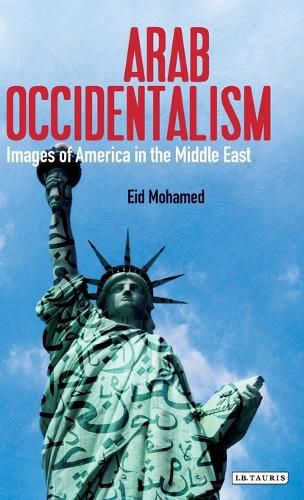Readings Newsletter
Become a Readings Member to make your shopping experience even easier.
Sign in or sign up for free!
You’re not far away from qualifying for FREE standard shipping within Australia
You’ve qualified for FREE standard shipping within Australia
The cart is loading…






When Barack Obama was elected in 2008, his foreign policy was at first seen to be the antithesis of that of his predecessor, George W. Bush. Eid Mohamed highlights how in the wake of this change of US administration, Arab media, literature and cinema began to assert the value of America as a potential source of ‘change’ while attempting to renegotiate the Arab world’s position in the international system. Arab cultural representation of the United States has variously changed and developed since 9/11, and again in the wake of the protests in 2011 and the ensuing political turmoil in Egypt, Libya, Yemen, and of course, Syria. Taking this into account, Mohamed offers an examination of the ways in which stereotypes of America are both presented and challenged through cinema, fiction and the wider media and intellectual production. Rather than seeing this process as one where the Middle East reacts to and attempts to negotiate with western modernity, Mohamed instead highlights the significant interplay of religion, pop culture and politics and the role they play in shaping the complex relation between America and the nations of the Middle East.
$9.00 standard shipping within Australia
FREE standard shipping within Australia for orders over $100.00
Express & International shipping calculated at checkout
When Barack Obama was elected in 2008, his foreign policy was at first seen to be the antithesis of that of his predecessor, George W. Bush. Eid Mohamed highlights how in the wake of this change of US administration, Arab media, literature and cinema began to assert the value of America as a potential source of ‘change’ while attempting to renegotiate the Arab world’s position in the international system. Arab cultural representation of the United States has variously changed and developed since 9/11, and again in the wake of the protests in 2011 and the ensuing political turmoil in Egypt, Libya, Yemen, and of course, Syria. Taking this into account, Mohamed offers an examination of the ways in which stereotypes of America are both presented and challenged through cinema, fiction and the wider media and intellectual production. Rather than seeing this process as one where the Middle East reacts to and attempts to negotiate with western modernity, Mohamed instead highlights the significant interplay of religion, pop culture and politics and the role they play in shaping the complex relation between America and the nations of the Middle East.